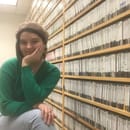During freshmen year of college, I was diagnosed with cystic acne. Almost my entire face was red, with barely an inch of clear skin.
College is an extremely social time: parties, club meetings, classes. The cystic acne became socially debilitating. My skin’s appearance made me uncomfortable going out, talking to new people, even Facetiming with my family. I was embarrassed every day.
The severity of my acne called for intense treatment. I needed more than just a drugstore face mask. My doctor prescribed Minocycline, a tetracycline prescription drug that’s often given to those who suffer from consistent skin conditions. I was put on birth control, also a common move for individuals with severe acne.
These prescription drugs saved my skin.
Access to those drugs was a privilege. The unfair healthcare system in the US prevents some from getting medication that can clear their skin.
Cystic acne is different than just a normal breakout. It consists of deep-rooted, inflamed and large bouts of acne anywhere on the face. Cystic acne never comes to a head, it resembles mosquito bites that stay on one’s face for weeks on end. Teenagers and adults are affected by it.
It’s nearly impossible to clear without medical treatment.
Acne is the leading skin disorder in the US, but some affected by it are excluded from receiving medical help. The healthcare system in place excludes people of low income and people who don’t hold a job that provides care.
Healthcare was the only way I could have afforded the prescriptions I needed to clear my skin. After a few months of taking Minocycline orally twice a day, birth control once a day and a prescription topical ointment once a day, my skin finally began to clear. Two years later, I’m still using Minocycline for fear of my acne returning.
Without healthcare, Minocycline can cost up to three hundred dollars out of pocket for 30 to 60 tablets. One can take the pill two to three times a day, so $300 worth of tablets would last about a month, if that. I would have spent thousands of dollars by now on Minocycline alone without healthcare.
But not everyone affected by acne is in the same position as me.
Dana Garbarski is a professor at Loyola University Chicago who teaches classes on the sociology of health care.
“Trying any of the products that exist would cost money,” Garbarski said about the benefit of having access to acne medication. “But time is an important resource and marker of privilege. In terms of the most serious cases of acne, the ones that will require dermatological care, the resources of time and money are exacerbated. You need insurance that covers dermatological care and some insurance only covers a portion of that, and for some of the prescriptions, time and money to manage some of the side effects, as no medication is free of consequences in this regard.”
The individuals who have healthcare in the US differ by social indicators. It comes down to privilege. Who has the money to afford it?
“Obviously socioeconomic status is one of the biggest predictors…,” Garbarski said, discussing who has and doesn’t have access to healthcare. “…those who have no job or jobs with no health insurance are the ones who are most likely to not have healthcare. In a country in which the population age 18 to 64 access to healthcare is tied to their employment status, and the labor market does not provide enough jobs with full healthcare benefits, this is a fundamental inequality in accessing healthcare in our society across socioeconomic lines.”
Lack of access to healthcare isn’t caused by money issues alone. Direct ties to race, gender, sexual orientation and healthcare are present.
“Across other axes of identity, racial/ethnic minority groups are systematically disadvantaged with respect to accessing healthcare in the US compared to whites in the US given the complicated ways in which…systemic racism is embedded in social institutions such as healthcare and housing, in terms of gender identity and sexual orientations, gender minorities, transgender and non-binary folks, and some sexual minority groups…do not have access to healthcare compared to other populations due to a mix of socioeconomic marginalization and discrimination embedded within the system of healthcare and other social institutions,” Garbarski said.
I am a white, middle-income, heterosexual individual. This identity provides me with a far better chance of having access to healthcare than a person of color, lower-income person, gay person, the list goes on.
The US healthcare system isn’t serving everyone and needs to change. If I had been born as a less-privileged identity, I may still be suffering with cystic acne.

